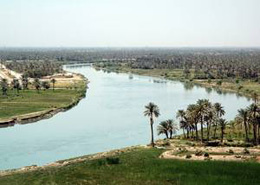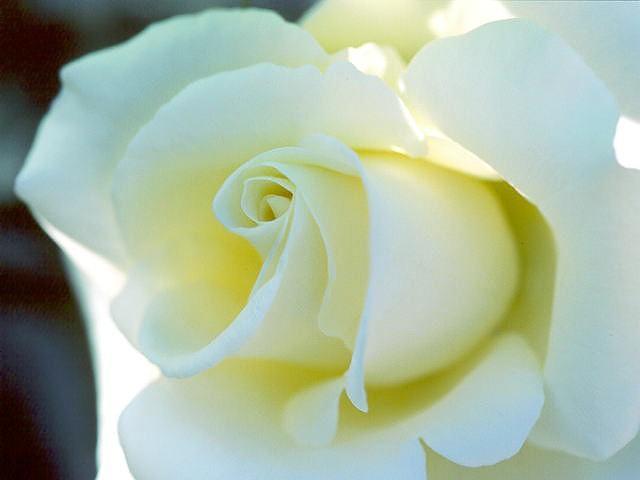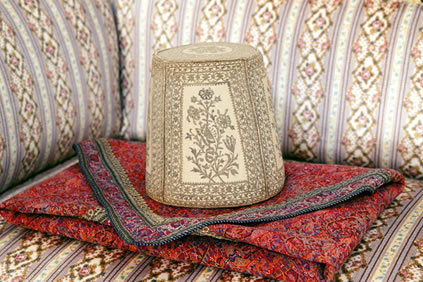On the Banks of the Tigris

My thoughts have held very different images of Baghdad this past week, and different truths from those of the current news. Even as I join Baha’is around the globe to celebrate the Festival of Ridvan, the holiest period among Baha'i holy days, I take pause to wonder why Baha’u’llah chose Baghdad in which to make His greatest announcement.
Baghdad was for Baha’u’llah a place of exile and hardship. But it was also in Baghdad that Baha’u’llah began to reveal the Word of God, which He called “the master key for the whole world,” for with this key, He wrote, “the doors of the hearts of men, which in reality are the doors of heaven, are unlocked.”
Let me share with you a handful of images from Baghdad that you will never see on the nightly news, and the story that goes with them.
It was an April afternoon in Baghdad, 1863, when Baha’u’llah, the Founder of the Baha'i Faith, left His home and made His way through the press of people gathered to see Him one last time. Men, women, and children crowded close to catch a glimpse of Him. Some climbed to rooftops to see Baha’u’llah, Who even now gave out coins to the poor and spoke words of comfort as He passed. Many wept openly. Who now would comfort the orphaned, the outcast, and the poor He had befriended? Who would speak on their behalf for justice? Muslims, Christians, and Jews, those with rank and learning and those with none – Baha’u’llah had touched the lives of so many who lived in Baghdad, and their encounters with Him had left none of them the same.
This outpouring of respect and affection was not at all what Baha’u’llah’s enemies had envisioned. Their schemes and lies had brought them an apparent victory over Baha’u’llah: an order from the Sultan of the Ottoman Empire for Baha’u’llah to leave Baghdad. But they had forgotten the truth in their Koran: “They plotted -- but God plotted: and of plotters is God the best!” Even now, as Baha’u’llah reached the banks of the Tigris River, and was ferried by the boatman to a garden on the other side, He would soon transform this day of intended disgrace into a day of abiding joy.
For Baha’u’llah was not simply Mirza Husayn-‘Ali, a Persian noble who had suffered torture and unjust imprisonment in Tehran; not merely a man who had endured, with his family, a mountainous winter journey into exile; not simply the one who had faced down an assassin in Baghdad and stood up to the challenge of mullas bent on waging holy war. Now in a garden on the Tigris, the air rich with the scent of roses, Baha’u’llah announced to a few what so many had longed to hear. He, Baha’u’llah, was a Messenger from God in that rank of Holy Messengers before Him – Abraham and Moses, Krishna, Buddha and Zoroaster, Christ, Muhammad, and the Bab.
 But the whole truth, the greater joy, opened from this: With Baha’u’llah the ancient promises of God were fulfilled. Baha’u’llah – “the Glory of God”– was the Promised One whose advent the faithful of every Faith had prayed to witness. Through Him God would shower humankind with so great a measure of guidance that the kingdoms of men would mirror the divine kingdom, and the peace for which humanity longed would become reality.
But the whole truth, the greater joy, opened from this: With Baha’u’llah the ancient promises of God were fulfilled. Baha’u’llah – “the Glory of God”– was the Promised One whose advent the faithful of every Faith had prayed to witness. Through Him God would shower humankind with so great a measure of guidance that the kingdoms of men would mirror the divine kingdom, and the peace for which humanity longed would become reality.
“The Divine Springtime is come,” declared Baha’u’llah, and those who were with Him for His Announcement named the garden on the Tigris “Ridvan” which means Paradise. Surely there could be no greater bliss than to stand in this spot, at this Hour, with the Promised One of God! Baha’u’llah linked His greatest Announcement to a law. He forbade the use of force in spreading the Word of God. The mightiest sword is the tongue, He said, for speech can remove the veils of ignorance from the human heart.
Every one of the five million Baha’is in today’s world, who come from the peoples of every land, also honor this truth laid out by Baha’u’llah: The religions called by different names are, in reality, one religion unfolding over time, their separate Prophets inspired by one Source, their sacred guidance flowing together into one divine purpose – the upliftment of the human spirit and the evolution of human consciousness. “Human tongue can never befittingly sing their praise,” Baha’u’llah wrote of those Divine Educators, “and human speech can never unfold their mystery.” It was in Baghdad that He first opened up, in His Book of Certitude, this profound shift of perspective on the religions we thought we knew.
Still, we are jaded by what we see in the name of religion, and it is hard to believe that Baghdad was called “the Abode of Peace” by its founder or “the City of God” by Baha’u’llah. That Baghdad, and the world, is so far removed from this reality reflects not the inadequacy of the Divine, but the slowness of humanity to pay attention. “For were men to abide by and observe the divine teachings,” wrote Baha’u’llah, “every trace of evil would be banished from the face of the earth.”
 To turn away from the light of divine guidance, however, is to be filled with darkness. The hearts that are portals to heaven can become the pathway to hell, for the Evil One is not an outside enemy, said Baha’u’llah, but the unbridled lower nature within us. “The actions of man himself breed a profusion of satanic power . . . The prevalence of sedition, contention, conflict and the like . . . provoke the appearance of the satanic spirit,” wrote Baha’u’llah. “Yet the Holy Spirit hath ever shunned such matters.”
To turn away from the light of divine guidance, however, is to be filled with darkness. The hearts that are portals to heaven can become the pathway to hell, for the Evil One is not an outside enemy, said Baha’u’llah, but the unbridled lower nature within us. “The actions of man himself breed a profusion of satanic power . . . The prevalence of sedition, contention, conflict and the like . . . provoke the appearance of the satanic spirit,” wrote Baha’u’llah. “Yet the Holy Spirit hath ever shunned such matters.”
Nonetheless, “It is Our purpose,” He further wrote, “through the loving providence of God . . . to abolish . . . all disputes, war, and bloodshed, from the face of the earth.” It was not an empty promise. In over one hundred volumes Baha’u’llah provided the tools to do the work, and called on the world’s peoples and their nations to take the future in their hands. Already Baha’is who come from peoples at war are learning how to create communities of peace.
Baha’u’llah made it clear that there can be no peace without unity, no paradise without justice. “The well-being of mankind, its peace and security, are unattainable unless and until its unity is firmly established,” He wrote and stated, “The light of men is Justice . . . The purpose of justice is the appearance of unity among men.” “No radiance can compare with that of justice,” Baha’u’llah declared. “The organization of the world and the tranquility of mankind depend upon it.”
Our noble task is to transform our societies and ourselves, and lest we be discouraged, Baha’u’llah assures us that we will meet the challenge. “Yet so it shall be; these fruitless strifes, these ruinous wars shall pass away,” He promised, “and the ‘Most Great Peace’ shall come.”
This is not a vision supplied by the nightly news, but by the newest Messenger of God.
Quotation found in The Story of Baha’u’llah: Promised One of All Religions p.150, 5, 170, 163, 225, 223-4, 267,
‘Most Great Peace’ on p.265. Original sources listed in book notes. Quotes re: unity from World Order of Baha’u’lalh, p.203;
re: justice from Advent of Divine Justice, p.27-28)
